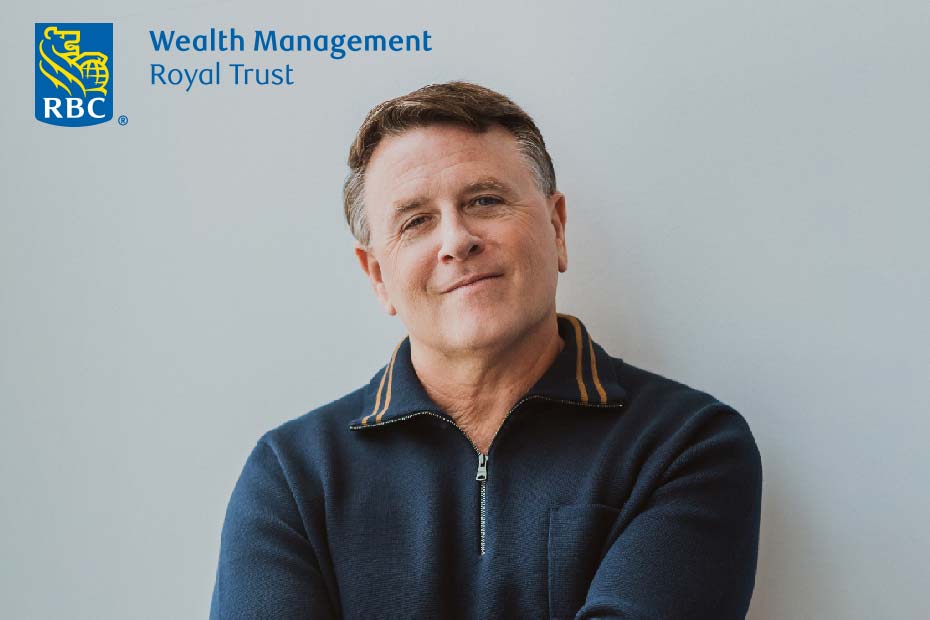Published June 4, 2020 • 7 Min Read
The following article first appeared on RBC Wealth Management, Research and Insights.
Financial abuse of the elderly isn’t often talked about, but it is a concern for many seniors. Here are ways to help protect yourself or your loved ones.
As a wills and estate lawyer, Bianca Krueger has seen her fair share of family conflicts and money-related arguments, but she says there’s nothing more heartbreaking than when a child takes advantage of an elderly parent. Several years ago she received a call from an 80-something client who said she wanted to change her will. She asked to meet away from her home — and Krueger soon understood why. The day of the scheduled meeting, a man called and spoke to her paralegal to cancel the appointment. Krueger thought that very strange, so she visited the client’s apartment regardless — where the woman’s son physically attempted to block Krueger from entering.
The elderly client wanted to appoint an attorney and change her will so that she could be assured that she was looked after in the future. The middle-aged son, had a severe drinking problem, was verbally demeaning to his mother, and he wanted to keep the condo to himself upon her death. He was also under the mistaken belief that as the current executor of her will, he had some power to block her decision-making ability during her lifetime.
In the end, Krueger succeeded in helping the client with her estate and incapacity planning with the help of her other children, but the incident stuck with her. Unfortunately, these stories are more common than many Canadians realize.
Financial abuse in particular is a growing problem in Canada. According to a 2014 Vancity report, which surveyed seniors in the Vancouver and lower mainland regions, 41% of elderly adults have experienced some form of financial abuse. With an expected 98% increase in seniors over age 85 in the next 20 years, that number is likely to rise. While there are other types of elder abuse, financial exploitation is the most common, with 62.5% of cases of abuse being money-related, according to the Ontario Human Rights Commission.
Understand What Financial Elder Abuse Looks Like
Elder abuse consists of more than just fraud targeting unsuspecting seniors. Financial elder abuse can also be a case of family members, caregivers or friends taking advantage of an elderly person’s finances. It could be a family member, a service provider that the older adult has entrusted, or it could be a neighbour or a friend.
Financial abuse can take many forms, from the seemingly innocent, like a child charging their groceries to their parent’s credit card, to the more deliberate, such as a new boyfriend trying to get included in a will. Often elderly people don’t realize they’re being taken advantage of until it’s too late. “It may not start with some big request,” notes Krueger.
The challenge with elder abuse — and a reason why Statistics Canada says that 96% of abuse experienced by older adults goes hidden or undetected — is that it’s often difficult to ascertain. It’s an increasingly grey area. When is it assisting with estate planning, and when is it stealing?
Spot the Red Flags: New “friends” Or Changes in Spending Patterns
It’s not always easy to see financial abuse of an elder as it’s happening. More often, cases are discovered after large portions of one’s savings have gone missing. But there are warning signs that loved ones should watch for. One big red flag is the new “friend.”
Suddenly, a new friend, companion, or romantic interest appears on the scene, then begins accompanying the senior to meetings with lawyers and financial advisors. Family members and loved ones should determine who that person is and question why he or she should be involved. Also be aware of any unusual purchases, such as the senior suddenly shopping online when it’s never been their habit. In such cases, it’s possible that someone else, a child or the new “friend,” is shopping with that senior’s credit card.
Social isolation is another red flag. If the senior is spending less time with their family or established social networks, and too much time with one person, it could be cause for concern. Krueger recommends that the elderly person in question stay involved in their community and maintain their social circle. Loved ones should be on the lookout for any sudden changes in social activities and patterns of behaviour.
Protect Your Loved One by Establishing Financial Power of Attorney
The best way to prevent elder abuse is to put plans in place early on. Begin by appointing the proper financial power of attorney, or POA, which is distinct from a health-related POA. By default, many people appoint the senior’s child as power of attorney. But in many cases, one’s offspring may not be ideally positioned to oversee the parent’s finances.
What if the child must decide between expensive around-the-clock homecare and a less expensive retirement home? Can a child objectively make the best choice, when one option may very well cut into their inheritance? And if the child is not adept at managing their own finances, should they be in charge of their parent’s finances?
It’s not easy to think critically about family members, but it’s important that the senior fully understand their relationship with the individual who has power of attorney, and that person’s relationship to others. Krueger has seen many cases of children disagreeing as to what is in the parent’s best interests. Sometimes, families end up making mistakes simply because siblings live in a different city and they’re not physically present.
You need to be realistic about your family situation. This means striving to be objective when it comes to making decisions that can affect multiple parties and extended families. That’s where having a trusted professional may help bring some the clarity and independence to make the best decision for the elder. Krueger recommends three criteria for choosing a private person to act under a financial power of attorney. The attorney should be trustworthy, live in the same geographic area, and most of all, he or she should have the senior’s best interests at heart. Krueger believes the best way to mitigate family issues or tensions is to appoint a corporate attorney, who can oversee spending, asset allocation, distributions to family members and more. A corporate attorney, for example, is not influenced by people’s opinions and is held to a very high standard.
Seniors may want to offer guidance to their power of attorney on how they would like to see their money spent. For instance, if the grandparent wants to pay for a grandchild’s education, they should articulate this specifically and have it documented.
Educate Yourself and Your Loved Ones about All the Options
Last but not least, education is key. “Boomers and seniors who are either approaching retirement or living in retirement must understand their financial goals, their sources of income, how to manage their current finances, and what to be aware of when it comes to potential financial abuse,” says David Agnew, CEO of RBC Wealth Management Canada.
Financial abuse of elders isn’t going to go away any time soon, but people can better protect themselves and their loved ones by being vigilant and well-informed — and recognizing that it’s not uncommon for something — or someone — to go awry. No one wants to believe that someone they love and trust would be capable of doing this. But it happens.
This article is intended as general information only and is not to be relied upon as constituting legal, financial or other professional advice. A professional advisor should be consulted regarding your specific situation. Information presented is believed to be factual and up-to-date but we do not guarantee its accuracy and it should not be regarded as a complete analysis of the subjects discussed. All expressions of opinion reflect the judgment of the authors as of the date of publication and are subject to change. No endorsement of any third parties or their advice, opinions, information, products or services is expressly given or implied by Royal Bank of Canada or any of its affiliates.
Share This Article






